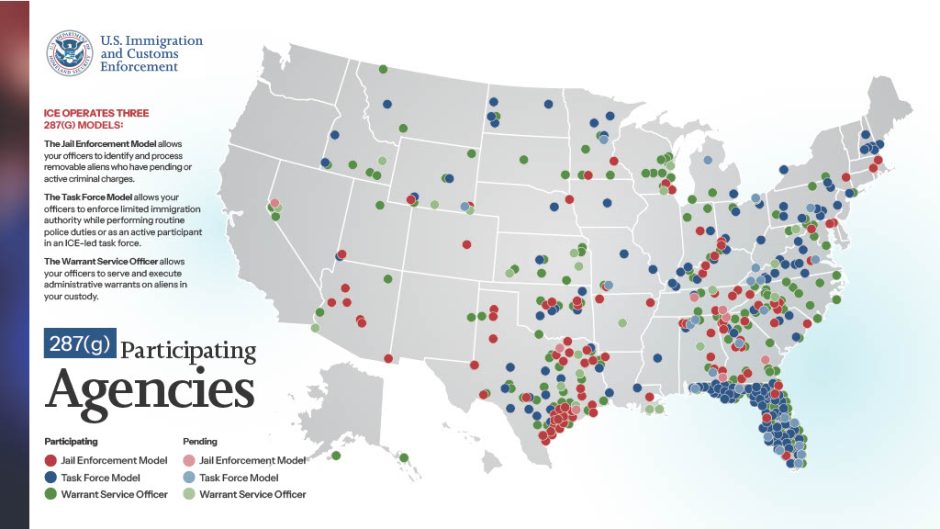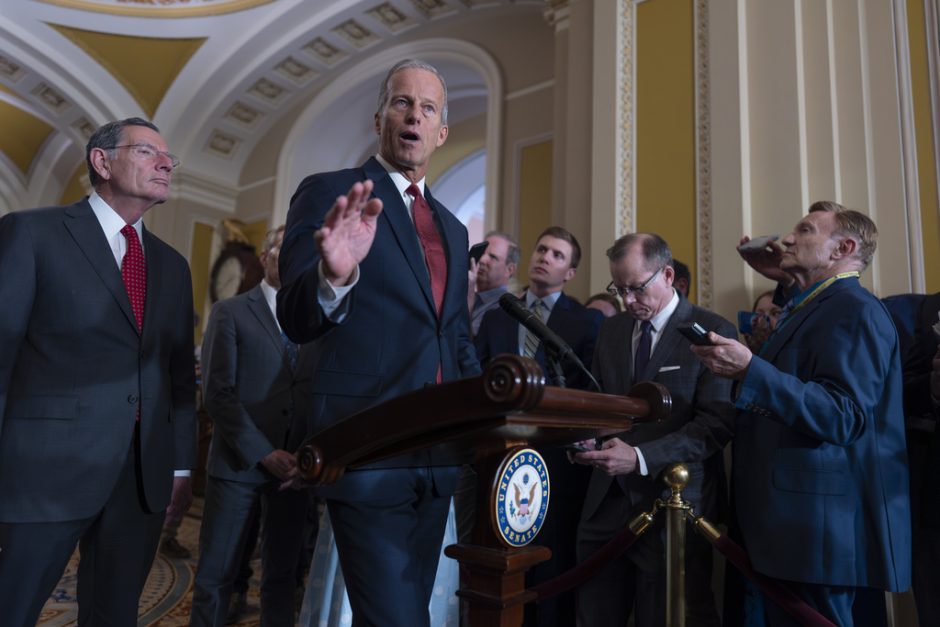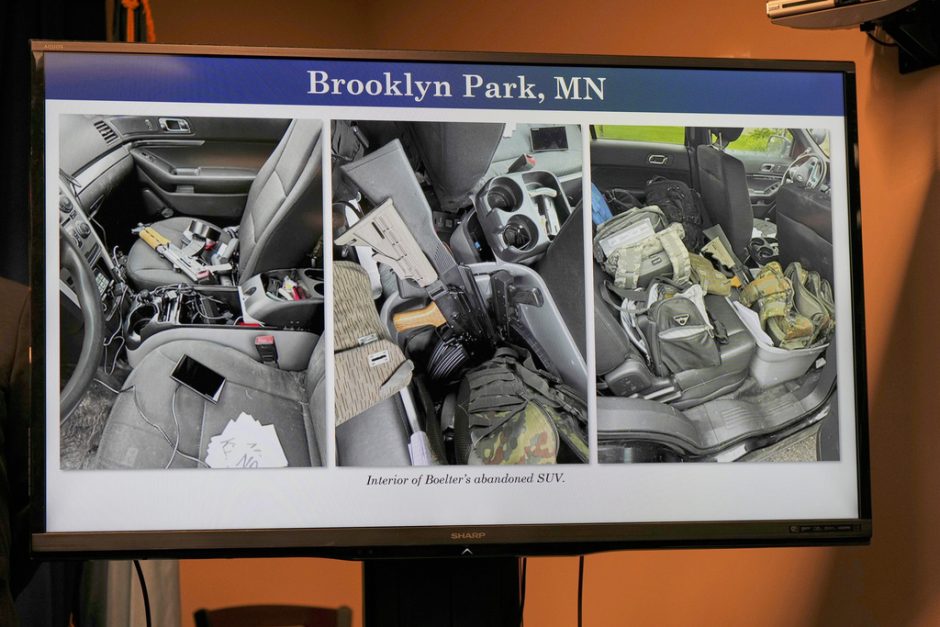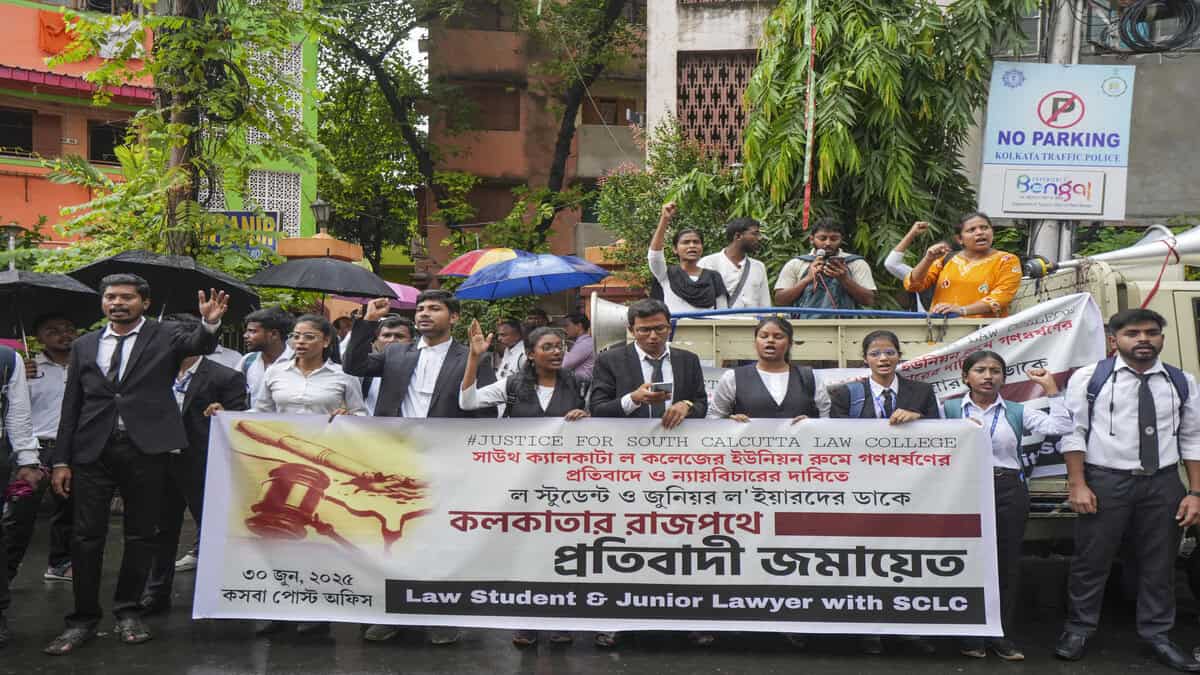Health and Human Services Secretary Robert F. Kennedy Jr. has pledged that scientists are not part of his workforce reduction efforts. But many scientists recruited for their expertise at the nation’s top health agencies have either already lost their jobs or are expecting to, according to interviews with employees and internal documents reviewed by PBS News.
These workers at the Centers for Disease Control and Prevention and the National Institutes of Health were hired under a federal authority known as Title 42, which allows some agencies to hire highly skilled scientists, engineers, and consultants, usually with advanced degrees and expertise in their research fields, from outside the civilian federal workforce.
Hundreds of these scientists hold jobs across the scientific and medical spectrum, from conducting tests in laboratories, to analyzing complex data, to performing field research for public health reports and recommendations, to holding senior-level managerial positions.
Their terms last up to five years, and tend to be renewed routinely. But since February, all scientists whose current terms expired have not been able to get them renewed, said union representatives for CDC and NIH employees.
“They’re quietly letting all of these highly skilled, well-educated researchers just roll off the books,” said Micah Niemeier-Walsh, vice president of American Federation of Government Employees Local 3840, which represents 200 members of the CDC’s National Institute for Occupational Safety and Health office in Cincinnati, of which around 40 fall under this category.
Neimeier-Walsh said some of the Title 42 staff at the CDC include industrial hygienists, epidemiologists, health scientists, engineers and public health experts.
Union representatives say the scientists’ lapsed statuses will lead to staffing losses that will disrupt lifesaving research and hamstring ongoing collection of data that communities nationwide depend on for public health guidance.
In some cases, fellows have been let go from broader teams that remain functioning but depend on them to advance their work.
Already, “this has caused enormous trouble to the valuable research that they do in things like searching for novel immunotherapies or novel diagnoses for cancer or autoimmune disorders like myositis. And so, although many of these people have been able to hold onto their positions for now, it has caused severe disruption to the work that they do,” said Matthew Brown, recording secretary for NIH Fellows United, which represents more than 5,000 early-career researchers, including at least 400 Title 42 hires.
Some NIH scientists whose expiration — or “Not To Exceed” (NTE) — dates were approaching, got a short-term extension at the last minute, but the uncertainty around their futures has disrupted their work, he added.
“The way that this has been handled has changed seemingly on an almost month-to-month basis,” Brown said. “This has caused enormous trouble to the valuable research that they do in things like searching for novel immunotherapies or novel diagnoses for cancer or autoimmune disorders.”
In response to an emailed list of questions about policy surrounding Title 42 hires, HHS spokesperson Emily Hilliard wrote, “Secretary Kennedy has been clear: HHS is not pursuing mass dismissals of working scientists. His commitment to scientific integrity and the continuity of critical research remains unchanged.”
The qualification that no “mass dismissals” were taking place is a shift from Kennedy’s assertion at a Senate hearing earlier this year, when he insisted that no “working scientists” were a part of HHS’ efforts to reduce the workforce by 20,000 employees.
“As far as I know, we have not fired any working scientists, the working scientists, the people who are actually doing science,” he said at a May 14 hearing before the Senate Committee on Health, Education, Labor and Pensions. Kennedy added that some scientists who “were doing IT or administration” did lose their jobs.
Some of these scientists are also foreign citizens with specialized skills who receive an H-1B visa to live and work in the U.S. Some wonder whether they will be able to remain in the United States legally if their term expires.
“That means that they have to consider what their lives would look like and if they might have to pick up not just their jobs, but their lives and their families,” Brown said.
The U.S. Department of Health and Human Services building in Washington, D.C. Photo by Leah Millis/Reuters
A federal judge ordered the Trump administration Monday to halt plans to downsize and restructure HHS, in response to attorneys general from 19 states who requested a preliminary injunction on the action. An HHS spokesperson told the Associated Press they were reviewing the decision and considering next steps. It is unclear how or whether the ruling would impact Title 42 employees.
PBS News spoke with three Title 42 employees who feared retaliation and shared their experiences on the condition of anonymity to speak candidly about their work.
“It’s a humongous lie,” said one CDC Title 42 employee whose end date is later this year.
A second CDC employee told PBS News that much scientific research relies on data analysis rather than experiments in laboratories with white coats, but that Kennedy and his team at HHS don’t seem to appreciate that.
“I think they have a very antiquated view of what a scientist is and what a scientist does,” said the employee.
At the CDC, which employs just under 1,000 TItle 42 scientists, workers began receiving phone calls in February from their managers saying their contracts would not be renewed. When those employees would ask where this directive came from, Niemeier-Walsh said, the managers could only say it was a request from above them.
Rep. Greg Landsman, D-Ohio, who represents the Cincinnati workers, wrote in March to the CDC’s labor relations office asking where this policy originated.
“Reductions to the Title 42 program would undermine the government’s ability to address ongoing health challenges and would diminish the vital support these professionals provide to communities across the country,” he wrote.
So far, no one has responded, Niemeier-Walsh said.
Some Title 42 employees’ terms do not expire for another few years, but they are still living under a cloud of uncertainty.
A third CDC scientist whose end date is still years away said they recently started taking an antidepressant for the first time due to the stress.
“For a lot of us, we chose this work when we could have chosen pharma, biotech, because of what the work entails. Not because we’re holier-than-thou,” the employee said. “It’s the type of person that this kind of institution attracts.”
The administration’s attacks against this particular workforce has taken a huge mental toll on all of them, the employee added.
“It’s not just about job security,” they said, “but also destroying the entire field of public health.”
Support PBS News Hour
Your donation makes a difference in these uncertain times.

















































